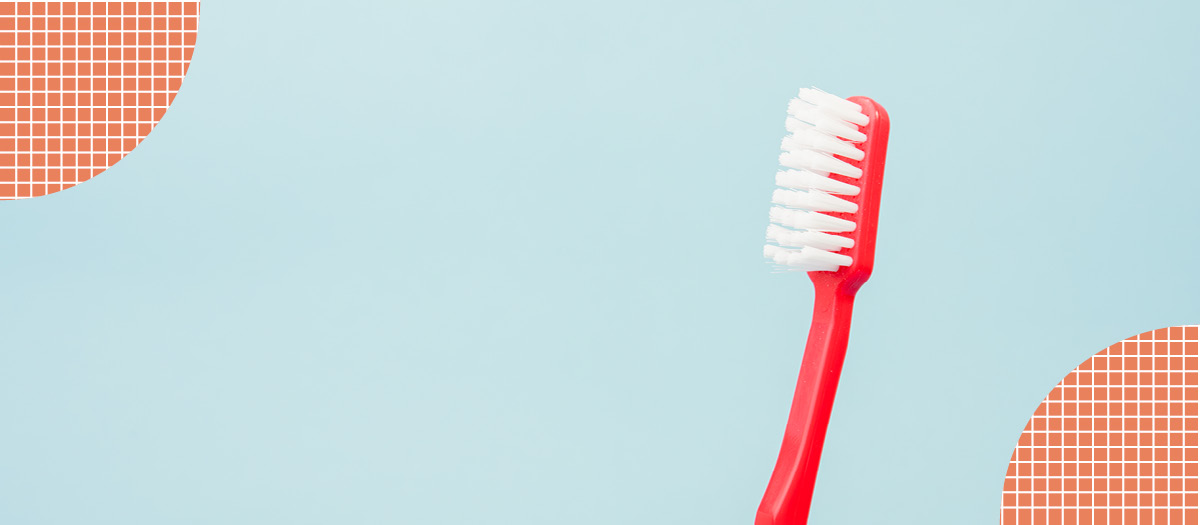Spring Into Action: Dental Care 101

Oral hygiene doesn’t have to be complicated. Simple steps that can be taken on a daily basis can help you maintain fresh breath, while also reducing your odds of developing cavities and gum disease.
Want to be absolutely sure that you’re covering all of your bases when it comes to your dental care routine? We’ve outlined the basics below to make taking care of your mouth a breeze.
Brushing Basics
To keep your teeth and gums in tip-top shape, experts recommend thoroughly brushing at least twice a day, and at least for two minutes at a time. If you eat sticky or sugary foods, brushing afterward is also a good idea, as those foods could stick around and wreak havoc on your dental health.
There are plenty of kinds of toothpaste to choose from, including those that will go a step beyond cleaning to also whiten and brighten your smile, as well as those designed for sensitive teeth. Fluoride toothpaste is highly recommended, as are electric toothbrushes that can more efficiently clean the teeth and gums. Hard bristled brushes aren’t the best idea, as they could end up doing more harm than good by causing irritation. Gentle is the way to go.
When it comes to brushing, though, it doesn’t end with choosing a high-quality toothbrush and toothpaste; you also need to use the right technique. Try small circular motions, rather than brushing in a straight line side to side, so that you can properly clean the entire surface of every tooth, as well as the gum line. After you brush your teeth, you can also brush your cheeks, tongue, and the roof of your mouth, which can all harbor nasty bacteria.
Ultimately, a thorough brushing will ensure your gums are massaged, your breath is freshened, your tongue is cleaned, and all of those food particles and plaque are removed before they can cause problems. Ah, nothing beats a fresh mouth!
Rinsing Recommendations
To rinse or not to rinse? Well, it’s essentially up to you, and you can certainly ask your dentist for advice to determine if you need to use a mouthwash.
You can choose to rinse with mouthwash before or after you brush, as either option could be beneficial and serve as a way to keep your entire mouth fresh and clean.
The right mouth rinse could loosen up food debris, treat dry mouth, and freshen your breath by killing bacteria rather than merely masking odor. Just know that this isn’t a substitute for brushing. Sorry!
Flossing Foundations
Flossing may seem like a hassle, but it’s an essential step that can really get in between your teeth and remove debris that your toothbrush could miss. Taking a few minutes to floss every day is recommended, as it could even help keep the gums clean and healthy.
You can choose the type of floss that you prefer, whether you like electric water flossers or traditional string floss. For teeth that have wider spaces between them, dental tape could be more effective than regular floss, but if you have teeth that are quite close together, you might be more comfortable using thin, waxed floss. And if you have partial dentures, braces, or a bridge, threaders and floss holders can come in handy.
If you’re going to use string floss, use anywhere from 18-24” of it, wrapping the majority around one of your index fingers before wrapping the rest, aside from about 4” of string, around your other index finger. With your thumbs and forefingers, grip the floss so you can move it in a sawing motion between your teeth, and use a gentle hand as you scrape between and around the teeth and gums. As you move from one tooth to the next, you can adjust the string to always have a clean portion to use. Trust us, you’ll be done before you know it!
Dental Diet
Dental care also includes eating the right foods to keep those chompers as clean as they can possibly be in between brushings.
Pure water can rinse the mouth of debris, while foods that have a bit of an abrasive texture, such as raw fruits and vegetables, could assist in keeping the exterior of the teeth clean. And foods that contain high amounts of calcium, vitamin D, and vitamin C could support your teeth from the inside.
Consuming too much sugar and starchy carbs could contribute to plaque and bacteria in the mouth, so cutting back on these foods, or at least brushing after eating them, might be beneficial too.
Extra Essentials
Although following all of the steps above can put you on the right track towards maintaining stellar dental health, nothing beats a trip to the dentist.
Seeing your dentist at least twice a year is an essential component to any oral care routine, as he or she will be able to spot problems in their earliest stages and give your mouth a total cleaning that will remove anything that your toothbrush and floss left behind. And with a Spirit Dental plan, you can enjoy three cleanings per year, which means your smile will always sparkle.
So there you have it. Dental care 101 involves brushing, flossing, and rinsing, along with eating right and making appointments with your dentist. Just remember: a consistent cleaning routine will help keep those teeth and gums strong and beautiful.
